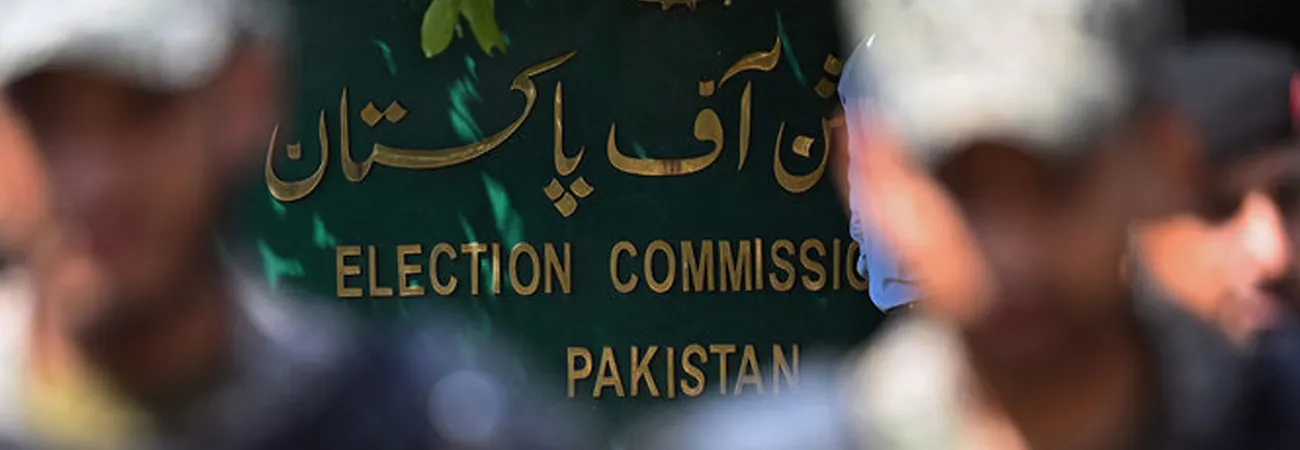i NEWS PAKISTAN
The Election Commission of Pakistan (ECP) has decided to file a review plea against the Supreme Court’s (SC) verdict on Pakistan Tehreek-e-Insaf (PTI) reserved seats, sources said on Wednesday. According to the sources, the ECP has instructed its legal team to prepare an appeal against the verdict and will file the appeal within the next two days. The commission is an independent constitutional body and will defend its authority in the apex court, sources said. The ECP will also challenge the top court’s decision to give independent candidates 15 days to submit their papers, sources said. According to the constitution, independent candidates have only three days to submit their papers, sources added. The ECP has also raised objections to the Supreme Court’s decision to allow candidates who were not awarded party tickets to contest elections, sources said. Simply writing “Pakistan Tehreek-e-Insaf” on the nomination papers does not make someone a party candidate, ECP sources added. The ECP has already approached the top court to clarify ambiguities in the verdict, sources said.
However, the Supreme Court has not responded to the ECP’s queries yet, sources added. SC verdict A 13-member bench of the top court, headed by Chief Justice Qazi Faez Isa, ruled that the PTI is eligible for the allocation of reserved seats, dealing a major setback to Prime Minister Shehbaz Sharif’s ruling coalition. Justice Mansoor Ali Shah announced the 8-5 majority verdict, setting aside the Peshawar High Court’s (PHC) order wherein it had upheld the Election Commission of Pakistan’s (ECP) decision denying the reserved seats to the SIC. Chief Justice of Pakistan (CJP) Qazi Faez Isa, Justice Jamal Mandokhail, Justice Naeem Afghan, Justice Yahya Afridi, and Justice Ameenuddin Khan opposed the majority decision. Reserved seats issue The reserved seats issue came to limelight after over 80 Pakistan Tehreek-e-Insaf (PTI) backed independent candidates emerged victorious in the February 8 elections. The SIC then approached the ECP on February 21 seeking allocation of reserved seats. However, the PTI suffered a setback after the electoral body, citing the party’s failure to submit its list of candidates, denied allocating the reserved seats to the SIC via its 4-1 majority verdict on March 4.
The election commission distributed the reserved seats for women and minorities among other political parties. The PTI-backed SIC had approached the court after the ECP refused to allocate the reserved seats due to the party’s failure to submit its list of candidates before the deadline. The Peshawar High Court (PHC) upheld the ECP’s decision, leading the SIC to appeal to the Supreme Court. In the Khyber Pakhtunkhwa Assembly – according to a notification, the ECP allocated one reserved seat each to Jamiat Ulema-i-Islam Pakistan, Pakistan Muslim League-Nawaz (PML-N) and Pakistan People’s Party (PPP). In Sindh Assembly – allocated reserved seat for women to Muttahida Qaumi Movement-Pakistan (MQM-P) and PPP. PPP’s Samita Afzal and MQM-P’s Fouzia Hameed elected on reserved seats. Subsequently, the PHC ruling allowed the ruling coalition, comprising the Pakistan Muslim League-Nawaz (PML-N), Pakistan Peoples Party (PPP), and other allies, to gain a two-thirds majority in the National Assembly. This decision increased the PML-N’s seats to 123 and the PPP’s to 73, while the SIC held 82 seats.
Credit: Independent News Pakistan









